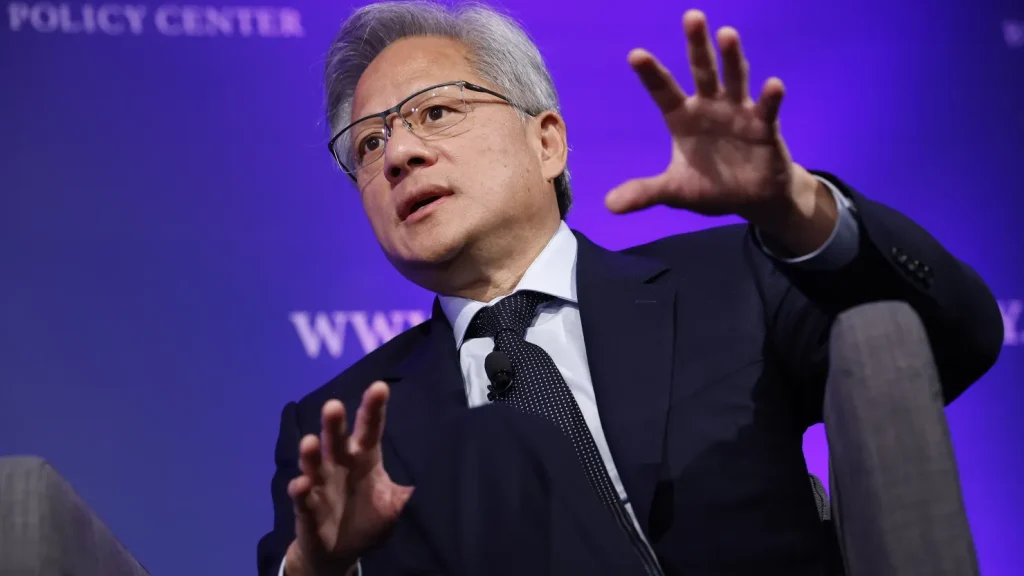China targets Nvidia with antitrust probe, escalates US chip tensions

China has initiated an antitrust investigation into Nvidia, marking a significant escalation in the ongoing tensions between the U.S. and China over the semiconductor industry. The probe into one of the world’s leading chipmakers comes at a time when both countries are engaged in a broader technological rivalry, particularly in the domain of semiconductors, which are essential for everything from artificial intelligence (AI) to national defense systems. This move reflects China’s growing scrutiny of American tech companies operating within its borders, a trend that is part of a wider strategy to reduce dependence on U.S. technology while bolstering its own semiconductor capabilities.
Nvidia, headquartered in California, is a global leader in the development of advanced graphics processing units (GPUs), which are crucial for a range of industries, including gaming, artificial intelligence, and data processing. Its chips are also integral to systems used in high-performance computing and machine learning. Nvidia has long been at the forefront of AI technology, with its GPUs playing a central role in powering the increasingly complex algorithms that drive machine learning and deep learning applications.
The Chinese investigation focuses on antitrust concerns regarding Nvidia’s market dominance. Chinese regulators are reportedly examining whether Nvidia’s control over key segments of the GPU market has led to unfair competitive practices, potentially stifling local innovation and limiting access to critical technologies for Chinese companies. This investigation follows a pattern of increasing regulatory scrutiny against U.S. technology giants in China, a reflection of the country’s desire to assert its own technological independence and challenge American dominance in the sector.
The timing of the probe is highly significant, occurring against the backdrop of escalating tensions between the U.S. and China, particularly in the realm of technology and trade. The semiconductor industry has become one of the key battlegrounds in this rivalry, with both nations recognizing the strategic importance of controlling the supply of chips, which are integral to everything from consumer electronics to military applications. The U.S. has taken steps in recent years to limit China’s access to critical semiconductor technologies, citing national security concerns. These moves have included export restrictions on key technologies such as advanced semiconductor manufacturing equipment, which have been aimed at curbing China’s ability to produce high-end chips.
China, in turn, has responded by doubling down on efforts to develop its own semiconductor industry, pouring billions of dollars into research and development to create homegrown alternatives to foreign-made chips. The antitrust probe into Nvidia could be seen as part of this larger strategy to protect and promote domestic chipmakers by challenging the market dominance of foreign companies.
The investigation is likely to have significant implications for Nvidia’s operations in China, where the company has a substantial market presence. While Nvidia is a major player globally, its business in China has been a critical revenue stream, especially in the gaming sector and for AI applications. Should the probe lead to any regulatory actions, such as fines or restrictions on Nvidia’s business practices, it could have a major impact on the company’s financial performance and its ability to access the Chinese market.
For the U.S. government, this move adds another layer of complexity to its ongoing tech battle with China. The Biden administration has already been focused on limiting China’s access to advanced semiconductor technologies, particularly in the fields of AI and quantum computing. Nvidia itself has been involved in a broader strategy to restrict the flow of its high-end chips to Chinese companies, as part of U.S. efforts to prevent Chinese firms from gaining a technological edge in critical areas. Nvidia has even faced difficulties in finalizing deals, such as its attempted acquisition of the British chipmaker Arm, due to antitrust concerns in multiple countries, including China.
The antitrust investigation into Nvidia is part of a growing trend of regulatory action against foreign companies in China. This move highlights the increasing protectionism within China’s tech sector as it seeks to reduce its reliance on U.S. technology and develop domestic alternatives. At the same time, China has been actively pushing for self-reliance in semiconductor manufacturing, which remains a major challenge given that the country is still largely dependent on foreign suppliers for advanced chips.
This investigation also underscores the broader geopolitical tensions between the U.S. and China, where technology has become a key element of the rivalry. With both nations eyeing leadership in AI, 5G, and next-generation computing, the semiconductor industry has emerged as one of the most critical arenas in this global contest. The outcome of China’s antitrust probe into Nvidia could have far-reaching consequences, not only for the company itself but also for the future dynamics of the global chip market and the ongoing technological struggle between two of the world’s largest economies. As the investigation unfolds, it will undoubtedly become a focal point in the broader discussion about technology, trade, and national security in the U.S.-China relationship.






